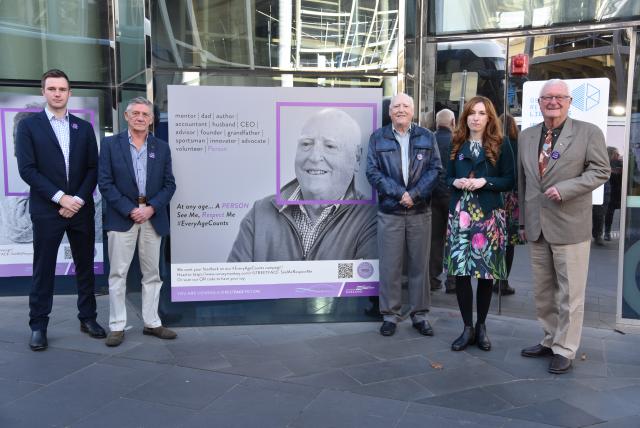World Elder Abuse Awareness Day was observed on Wednesday June 15 and the City of Greater Geelong has partnered with local organisations to prevent elder abuse from occurring in our communities.
Elder abuse is any act which causes harm to an older person and is carried out by someone they know and trust such as a family member or friend. It may be physical, social, financial, psychological, or sexual and can include mistreatment and neglect.
As part of the City’s involvement with the Barwon Elder Abuse Primary Prevention (BEAPP) Network, a number of initiatives have been arranged. These include:
The STREETFACE See Me, Respect Me campaign, in which large-scale posters of older people from the Geelong region have been installed at key venues around the Geelong region, including the Geelong Library and the Civic Centre car park.
The Every Age Counts, ‘Take the Pledge’ social media campaign in which City of Greater Geelong councillors and CEO, Martin Cutter, have taken the pledge against ageism.
The See Me, Respect Me morning tea at Portarlington Neighbourhood House at 10am on Wednesday 22 June. Bookings can be made via education@barwoncls.org.au or by calling 1300 430 599.
The City is working with Cultura on elder abuse awareness videos, which have been translated into Dari, Karen, Kareeni, Swahili and Arabic.
The City’s Catenary lights, on the corner of Moorabool and Malop streets, will be lit up in the colour purple from 13 June in recognition of elder abuse and those that have suffered.
City of Greater Geelong Councillor Sarah Mansfield, chair of the Community Health and Aged Care portfolio said it was vital to raise awareness of the issue.
“Elder abuse is a global issue which affects the health, wellbeing, independence and human rights of millions of people, and sadly, it is also present in our local communities,” Cr Mansfield said.
“The City is a proud member of the Barwon Elder Abuse Primary Prevention Network, which is working hard at a local level to raise awareness and increase the capacity of service providers to respond to suspected elder abuse.”
“By increasing this capacity and developing referral pathways, we are supporting people as they age to access help when they need it.”









